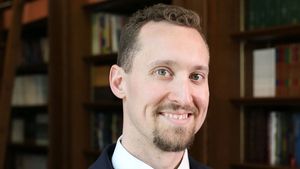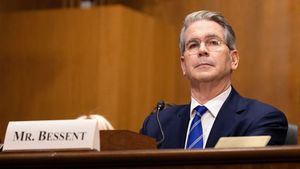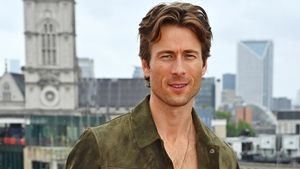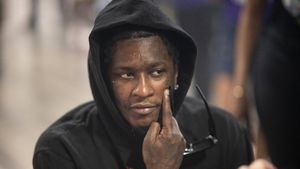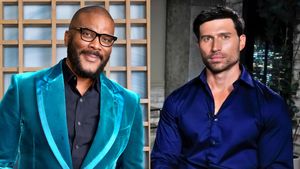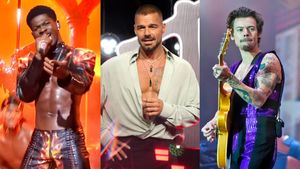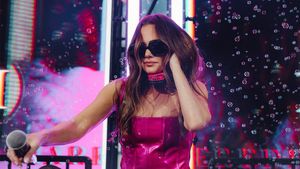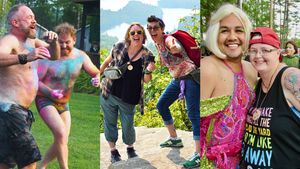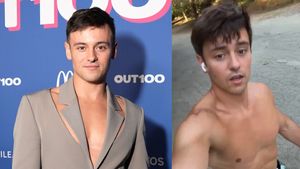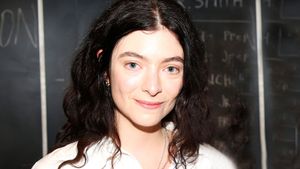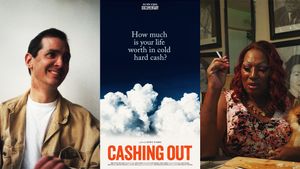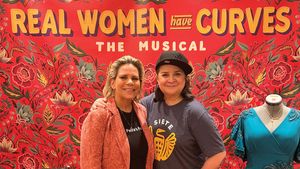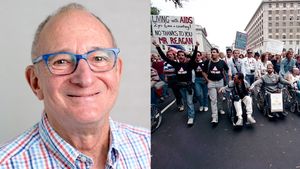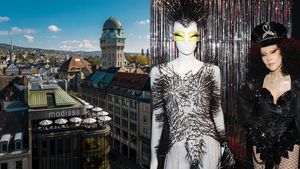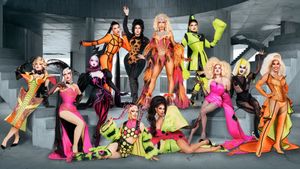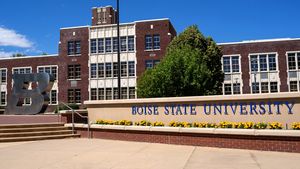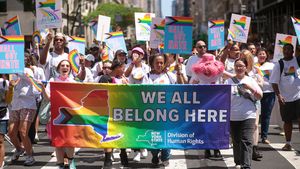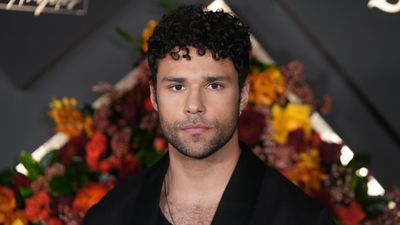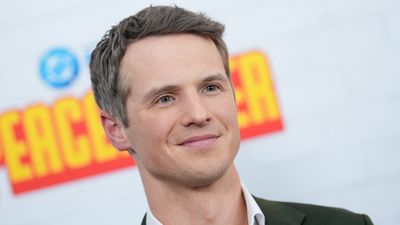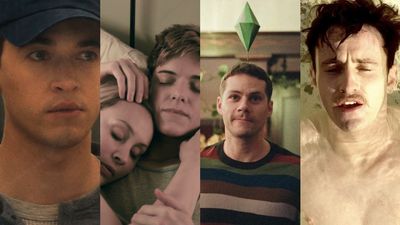There’s a moment in Bad Things when Molly Ringwald’s character, a TED Talk-styled hospitality guru by way of femme fatale, casually tells the film’s lead Ruthie (Gayle Rankin) — whose sanity slowly slipping through her shaking fingers — that we all do “bad things” sometimes. It’s a simple enough truth, but in context, it becomes dangerously loaded, full of a darker meaning that creates a permission structure for all the mayhem that follows. It’s also representative of the type of films that director Stewart Thorndike is passionate about making. Movies that offer marginalized people space to thrive, to transgress, and, most of all, to do ‘bad things.’ In Thorndike’s world, the kinds of emotions and behaviors expressed are those typically reserved for more mainstream antiheroes. Think Travis Bickle, Hannibal Lector, and Jack Torrance — all cis white men. Thorndike busts open the doors of who gets to be an antihero, and in doing so presents an alternate reality that’s full of dark delights, terror, and cathartic rage.
[Editors note: PRIDE spoke with Stewart Thorndike exclusively in her role as the director of ‘Bad Things,’ in adherence with the SAG-AFTRA and Writers Guild of America strike guidelines.]

Courtesy of Shudder.
Bad Things follows a group of queer friends who head off for a winter getaway in the unoccupied hotel her grandmother left her. Along with Ruthie is her partner Cal (Hari Nef), their amiable friend Maddie (Rad Pereira), and mysterious grifter Fran (Annabelle Dexter-Jones) who has her sights on seducing Ruthie. Tensions rise as they spend the weekend together, and they soon find themselves pulled down into the hotel’s seductive, disorienting embrace, which leads them to start, well, doing bad things to each other.
As with her first film, Lyle, which put a queer spin on the classic pregnancy horror film Rosemary’s Baby, Thorndike is turning her unique queer lens on another tentpole horror film with Bad Things. This time the director checks in, thematically, to Stanley Kubrick’s The Shining. Why? Well at first it was entirely by accident. “My relationship to The Shining sort of just like woven into my bloodstream and body and instincts because I didn’t really notice that I was doing that until I was sort of doing it,” she tells PRIDE. It’s surprising since there are many subtle and overt nods to the film including two joggers who appear in the hotel hallways similar to the ghostly twins that haunted the Overlook Hotel. “That’s it’s funny that you bring them up,” she says to the comparison. “Someone else just pointed out that Hari [Nef’s character] stops to look at a chair that she’s admiring and it’s outside of room 237. And that’s just a total wild coincidence. It’s gotta be Kubrick talking from the grave,” she laughs.

Courtesy of Shudder.
But once she understood the direction her creativity was leading her, she saw the opportunity it presented. Reimagining these films to some degree creates an almost alternate timeline, it explores the idea of a world where diverse voices were given the opportunity to tell these classic tales. “I wanted to just queerify, repurpose, sample, change, toy with this masterpiece. It’s an instinctual thing and it’s a repositioning of who’s looking and who’s telling the story. And it changes so you see a kind of conversation happening. But it’s also allowing women and nonbinary people basically nonwhite straight people to explore all this territory, that’s hot territory, that I feel like we’re not allowed to explore even though we are feeling it — and maybe we even feel it more because we’re told not to. So there’s nothing, you know, subtle. There’s nothing apologetic about the rage,” explains Thorndike.

Courtesy of Shudder.
The film doesn’t only tackle queer themes, but it puts queer actors front and center as well. “I think it’s natural that I am casting queer people because it’s my world. I smell and find and desire those epic talents. And Hari is just one of those people,” she explains. Hari Nef dazzles in her role as Cal, Ruthie’s girlfriend and the nucleus of the friend group. For Thorndike that casting selection was a no-brainer the moment they met on Zoom. “Hari’s so magnificent and dazzling. And always, you know, the smartest person in the room and funniest person in the room,” she gushes. “She just was so soulful and vulnerable and fresh-faced and kind of a heartbreaker. So it was her sadness that I hadn’t really seen before. I knew that casting Cal, needed to be the person that everybody’s life revolved around and that everybody was in love with and so Hari was a natural fit for that. But what Hari also brought to the part was all this pathos in pain and I think that’s really what is a surprise and a secret weapon of Hari’s. [What] I want to see more of from her is her dramatic relationship with pain. I just think it’s really beautiful,” Thorndike recalls.

Courtesy of Shudder.
The film, which is the second of the director’s planned “motherhood trilogy” also explores a theme that Thorndike is captivated by and one that she is driven to explore and unpack. “I think of motherhood as being like my central religion or something,” she confesses. “It’s more of a like a worshipping of the power. It’s the first relationship we ever have. And our first heartbreak for a lot of people. Romantic relationships, I argue can’t even compete with that dynamic.”

Lida Suchy
It’s also personal for Thorndike, who says that these films are a glimpse into her own head and process around the ideas, both beautiful and dark, about motherhood. “What I’m trying to explore with the film is that maybe we’ve underestimated this relationship that we all have. There’s one day for each person on this planet, you had a big day with your mom. At least one! You were in the same room... and it probably was a violent day.” For Thorndike, it’s an exploration of the metaphysical as much as the visceral. “Why isn’t that God? It’s about the massive influence that Mother has over us. God is dead. Mom is reigning strongly over us all.”
Bad Things is streaming now on SHUDDER and AMC+. Watch the trailer below.
\




